NCERT Solutions for Class 8 Maths
Chapter 1 Rational Numbers
Exercise 1.1
Q1.
Using appropriate properties find: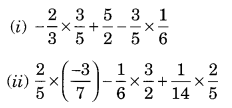
Sol: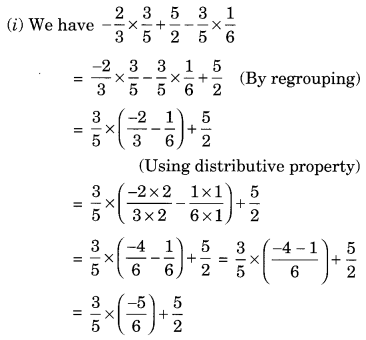
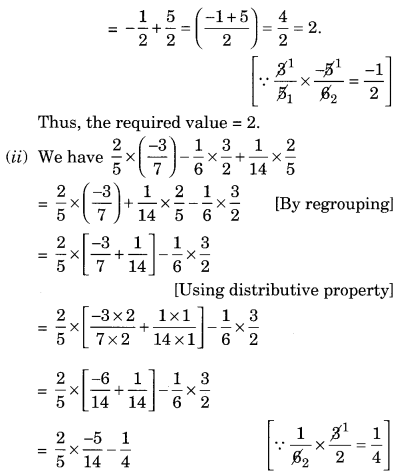
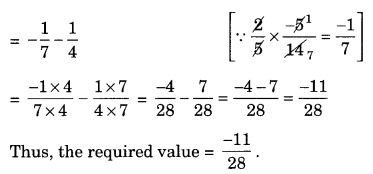
Q2.
Write the additive inverse of each of the following:
(i)
(ii)
(iii)
(iv)
(v)
Sol: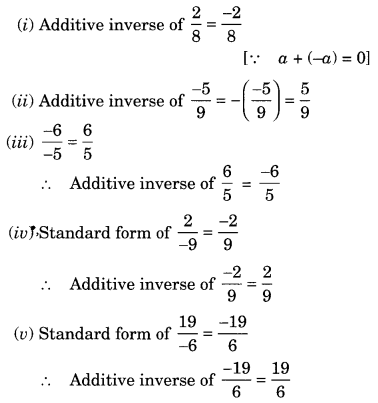
Q3.
Verify that -(-x) = x for
(i) x =
(ii) x =
Sol: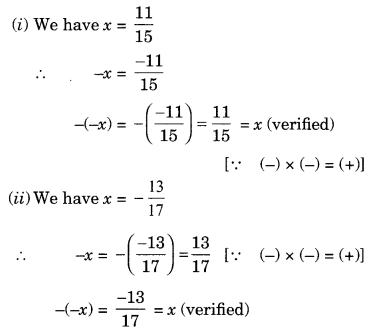
Q4.
Find the multiplicative inverse of the following: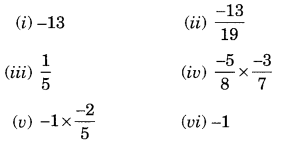
Sol: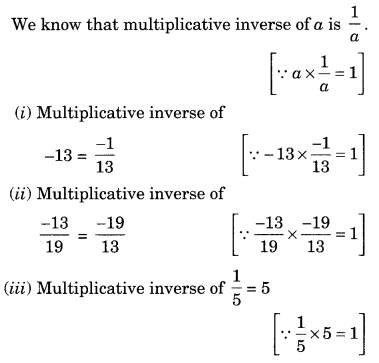
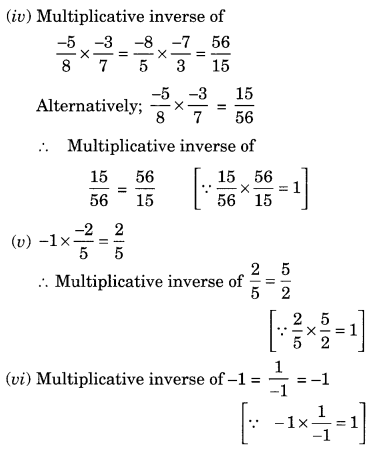
Q5.
Name the property under multiplication used in each of the following: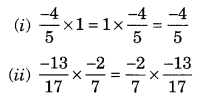

Sol:
(i) Commutative property of multiplication
(ii) Commutative property of multiplication
(iii) Multiplicative inverse property
Q6.
Multiply
Sol: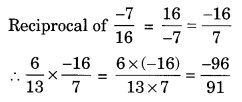
Q7.
Tell what property allows you to compute
Sol:
Since a × (b × c) = (a × b) × c shows the associative property of multiplications.
Is
Sol:
Here -1
Since multiplicative inverse of
Q9.
If 0.3 the multiplicative inverse of 3
Sol:
Multiplicative inverse of 0.3 or
Thus, 0.3 is the multiplicative inverse of 3
Q10.
Write:
(i) The rational number that does not have a reciprocal.
(ii) The rational numbers that are equal to their reciprocals.
(iii) The rational number that is equal to its negative.
Solution:
(i) 0 is the rational number which does not have its reciprocal
[∵
(ii) Reciprocal of 1 =
Reciprocal of -1 =
Thus, 1 and -1 are the required rational numbers.
(iii) 0 is the rational number which is equal to its negative.
Q11.
Fill in the blanks.
(i) Zero has ……….. reciprocal.
(ii) The numbers ……….. and ……….. are their own reciprocals.
(iii) The reciprocal of -5 is ………
(iv) Reciprocal of
(v) The product of two rational numbers is always a …………
(vi) The reciprocal of a positive rational number is ……….
Sol:
(i) no
(ii) -1 and 1
(iii)
(iv) x
(v) rational number
(vi) positive





0 Comments